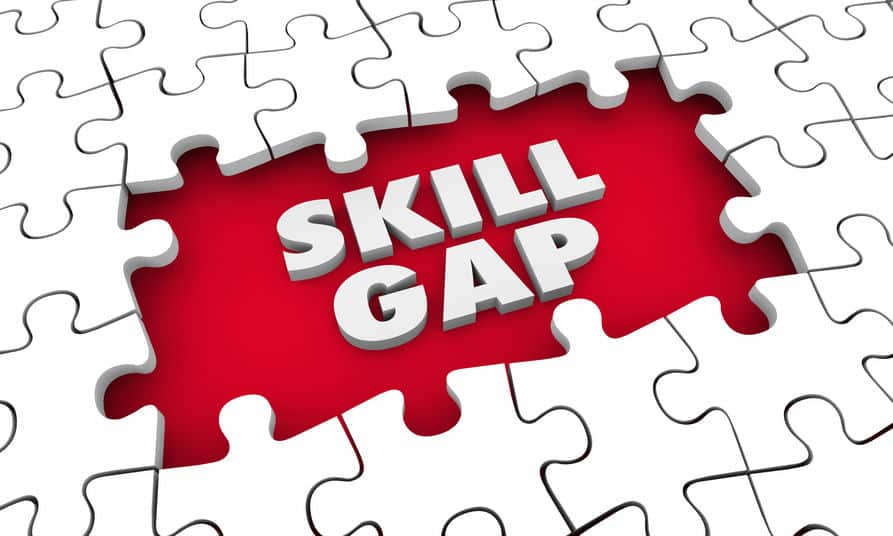I have recently been in discussion with Adriana Beal , an experienced business analyst, based in New York. She has contributed a stimulating and important article to the IIBA blog on ComputerWorldUK hosted by yours truly. I asked Adriana if she would be able to provide a similar article to help BA’s (or wannabe BA’s) to assess their level of business analyst competency assessment or business analyst skill assessment and she was happy to oblige.
, an experienced business analyst, based in New York. She has contributed a stimulating and important article to the IIBA blog on ComputerWorldUK hosted by yours truly. I asked Adriana if she would be able to provide a similar article to help BA’s (or wannabe BA’s) to assess their level of business analyst competency assessment or business analyst skill assessment and she was happy to oblige.
Thanks Adriana and help us both out by adding your own comments or questions.
By Adriana Beal
Adriana Beal points out that Performance measurement systems offer corporations, managers, and individual contributors many benefits, from the clarification of responsibilities to the alignment of corporate goals with lower-level objectives at the process, department, group, and individual levels.
In the context of business analysis, performance measures can be used to set expectations regarding what constitutes effective business analysis work relative to the identification of business needs and the specification of optimal solutions to meet those needs.
Business analyst performance review must be frequent and consistent to be effective and provide consistent feedback about the individual.
A business analyst has 6 underlying competency areas that they can consider in their business analyst skill assessment and to start to develop a business analyst skills matrix:
that they can consider in their business analyst skill assessment and to start to develop a business analyst skills matrix:
The 6 underlying business analyst competencies areas are:
- Analytical Thinking and Problem Solving
- Behavioural Characteristics
- Business Knowledge
- Communication Skills
- Interaction Skills
- Tools and Technology
Table of Contents
Image used by permission from ModernAnalyst.com, the premier Business Analyst Community .
.
As a junior business analyst, you may be asking yourself, “what skills and capabilities do I need to demonstrate in order to be a strong candidate for higher levels of responsibility at some point in the future ?”
Understanding the essential skill set expected from a business analyst is a critical endeavour for a professional starting a career in business analysis, and an important step toward identifying performance improvement opportunities.
The successful performance of a business analyst depends in large part on soft skills (non-technical skills such as team-building and listening). Many organisations require business analysts to be technically oriented as well, but differing business practices and the rapid advances in technology and methodologies affect the importance attributed to each skill on a case by case basis.
For instance, in an agile environment, documentation skills will be less valued than communication and facilitation skills. Another example: while knowing how to conduct stakeholder analysis may be very important for a business analyst working as a consultant for multiple client organisations, this skill might turn out to be of little value in an environment with a small number of end users, and stakeholder roles clearly identified.

Business Analyst Competency Assessment
Here are 5 steps that you can take to find out your competence gaps and develop a plan to close those gaps:
Identify The Key Skills Required By Your Organisation
As a first step to identify potential competence gaps, you should learn how to distinguish nice-to-have from non-negotiable skills for business analysts in your organisation, as well as capabilities required from entry-level vs. experienced business analysts.
Certain soft skills, such as communication, are considered vital workplace skills in all types of business enterprises, since ineffective communication is considered one of the main factors leading to unsuccessful projects. If you think you need help in this area, in-person, group training can be an effective way to hone better communication skills, focusing, for instance, on assertiveness and conflict resolution.
As already mentioned in the introduction, many must-have skills are company-dependent. In order to identify what new capabilities would add more value to your role, talk to colleagues, business representatives, and your management team, to develop a good understanding of the current situation and potential changes.
You might learn, for example, that your company is about to implement new business rules, or a new requirements management tool, or that the team is hoping to develop a deeper understanding of a certain business process to help prioritise requirements for a new project. Based on the collected information, you can start to plan your skill building strategy around the identified priorities.
The following list illustrates soft and hard skills that are important for business analysts in general:
- Interviewing and listening skills, to talk with individuals and groups about their needs, ask the right questions to surface essential requirements, and correctly interpret what project stakeholders say.
- Facilitation skills, to lead requirements elicitation workshops, work with stakeholders to define acceptance criteria, moderate brainstorming sessions, etc.
- Observational skills, to validate information obtained through other methods, deepen the understanding about business processes, and so on.
- Analytical skills, to critically evaluate data gathered from multiple sources, reconcile conflicting requirements, decompose high-level information into details, abstract from particular examples to a more general understanding, identify underlying needs from explicit user requests, etc.
- Writing skills, to communicate information effectively and consistently to different types of audiences, including senior management and technical development staff.
- Organisational and time management skills, to cope with the vast array of information gathered during elicitation and analysis, manage time well, etc.
- Teamwork skills, to share responsibilities, confer with others, help others do their jobs, and seek help when needed.
- Relationship-building skills, to develop a large, well-diversified network of valuable connections across the organisation.
- Negotiating skills, to get consensus about priorities, help resolve conflicts among project stakeholders, etc.
- Modelling skills, to represent requirements information in graphical forms, produce business object models
 , conceptual data models, process models
, conceptual data models, process models etc.
etc. - Requirements management skills, to help implement and/or improve requirements processes and practices and to define, for a given initiative, the tasks to be performed, the techniques to be used, and the deliverables to be produced.
- Change management skills, to ensure that standardised methods exist for efficient and prompt handling of all changes to baselined requirements and other change requests.
- Reporting skills, to produce periodic reports for the project manager and other stakeholders showing progress against milestones, status, issues, risks and dependencies.
The Business Analysis Body of Knowledge® (BABOK® v3), published by the International Institute of Business Analysis (IIBA) , provides a description of generally accepted practices and areas of knowledge in the field of business analysis, verified through review by practitioners and recognised experts in the field. It can serve as a baseline for assessing the skills you already have and the ones you may need to develop to become a skilled practitioner.
, provides a description of generally accepted practices and areas of knowledge in the field of business analysis, verified through review by practitioners and recognised experts in the field. It can serve as a baseline for assessing the skills you already have and the ones you may need to develop to become a skilled practitioner.
Evaluate Yourself
Once you have gathered enough information about the skills that are relevant to your job, area and career, go through that list and establish your present level in each of the relevant competencies. Do you feel you struggle with abstraction and problem solving?
Because of their lack of business experience, many junior business analysts have difficulty understanding business requirements, and the abstraction involved in translating user needs into detailed specifications presents a considerable challenge. Are you uncomfortable speaking in front of a group? It may take time for a new BA to develop ease and confidence when speaking in front of an audience.
Carry out this exercise for all the key skills identified in step 1. The difference between your current level and the desired level of proficiency in each of the relevant skills is your career skill gap or competence gap.
Ask For Objective Feedback From Managers, Colleagues And Business Stakeholders
After you have finished your self-assessment, discuss it with your immediate supervisor and other appropriate managers to get their perspective and feedback. Ask clarifying questions, but don’t become defensive (or you risk getting the person to either clam up or become less forthcoming).
You should also reach out to colleagues and business stakeholders with whom you interact on a frequent basis, to ask them where you could improve, and learn from different perspectives. If the responses are vague and unsatisfying, ask probing questions.
For instance, if you are told by a project manager that improving your business knowledge would be a desirable change, you could get this person to better define what “business knowledge” would mean in your case, by asking questions such as “what one or two things, above all others, would most build confidence in my knowledge about the business processes?”
Prioritise Gaps And Develop Your Action Plan
When it comes to developing new skills, or closing a performance gap, it’s better to focus on one or two key areas of development at a time.
Once you have identified which areas you are going to tackle first, find out the best options available: it could be taking a training class, setting up sessions with subject matters, reading relevant books , etc. Create an action plan reflecting the various strategies you are going to use to close your competence gaps.
, etc. Create an action plan reflecting the various strategies you are going to use to close your competence gaps.
Finding a mentor can also be of great help in understanding and overcoming your career skill gaps: your mentor can help you assess your strengths and weaknesses, teach you new skills, and assist you in developing a long-term career plan.
Monitor Your Progress
The final step of your career skill gap analysis consists in monitoring your progress with the action plan and repeating your self-assessment periodically to confirm that you have increased your competence levels.
As you reach your target level of proficiency for one particular skill, you can cross that gap off your action plan and move on to the next priority area.
Don’t forget to celebrate your milestones as you expand your skill set!
Using Performance Measurement for Learning and Improvement
To correctly assess the performance of a business analyst, it is not sufficient to know their performance with respect to quality, timeliness, and efficiency. Even when these performance factors are relatively poor, if the business analyst has not received proper training, the subject matter experts are not providing quality input for the business analyst work, or the marketing department keeps changing requirements after sign-off, the performance problems may be completely outside the control of the business analyst.
Measures only provide rough and ready performance data; the real wealth is in the analysis and interpretation of what they mean, and what action should be taken in response.
Performing Regular Reviews
Since business analysis processes perform tasks and produce outputs on a recurring basis, performance data should also be reviewed regularly. Periodic reviews are important because over time they provide a better understanding of what the measures truly mean and to perform business analyst competency assessments.
For effective communication, performance measurement information must be as brief as possible, and organised in such a way that things like cause-effect relationships, process relationships, and the relative importance of performance factors become readily apparent during the review process.
To be effective, feedback about individual business analyst performance review must be frequent and consistent. Instead of annual performance reviews, organisations should encourage frequent discussions about current performance levels of business analyst competency assessments, business analyst skills assessment and trends, and make sure managers develop a trusting and safe environment where individuals can ask for feedback and help when needed.
Effective Incentives and Rewards for Business Analysts
Adriana Beal  points out that incentives and rewards are considered critical elements of good management, but they are only effective when certain rules are followed:
points out that incentives and rewards are considered critical elements of good management, but they are only effective when certain rules are followed:
Decouple individual results from financial rewards
If financial rewards are used, they should be linked to group- and company-wide achievements. The willingness to learn from performance measures, as well as to collaborate, experiment, and innovate, will be significantly higher if individual performance measures aren’t used as a direct basis for monetary reward.
Recognise and reward not only good performance, but also honest attempts to improve that didn’t work
Smart companies want their business analysts to use creativity to find innovative solutions to business problem. To encourage the right behaviours, they provide recognition not only for good performance, but also for honest mistakes made in an attempt to reach better results.
Pay attention to the elements of intrinsic motivation
More important than incentives, is catering to people’s inherent desire to feel pride and ownership. Seeing results in the form of objective measures of one’s work, and receiving positive feedback and recognition, increases one’s sense of accomplishment and helps build a motivated and effective organisation.
Developing a sense of purpose, in particular, can be a big motivator for business analysts. One of the most effective ways to motivate business analysts is to show them the bigger picture. By making sure they understand how crucial their work is, and how it fits with the larger picture, it’s possible to get business analysts much more excited about learning and improving.
Business Analysis Self-Assessment Tool
The business analyst skill assessment tool from the IIBA consists of a series of statements and corresponding experience and performance indicators that determine your overall competency.
consists of a series of statements and corresponding experience and performance indicators that determine your overall competency.
The self assessment tool can be used conjunction with the IIBA business analyst competency matrix to:
- Allow you to identify strengths and uncover gaps, confirm your effectiveness as a business analyst
- Help you plan ongoing development and career growth
- Allow you to map your skills to business analyst positions and job opportunities
- Assist leaders, managers and organisations with talent acquisition, managing resources, and measuring skills and performance
Conclusion
Performing a business analyst competency assessment is an important step in career development and the 5 steps outlined in this article will help you to find your competence gap and develop a plan to close those gaps. If you take the time to create a business analyst skills matrix of your competencies you will soon start to get an idea on which areas you can further develop in.
and the 5 steps outlined in this article will help you to find your competence gap and develop a plan to close those gaps. If you take the time to create a business analyst skills matrix of your competencies you will soon start to get an idea on which areas you can further develop in.
Business analyst skill assessment and business analysis processes can and should be measured to help establish and improve on business analyst assessments.
It may not be possible to measure them as precisely as a manufacturing process, but they can be measured well enough to give management relevant, useful, and timely information for initiating actions to correct problems, escalate successes, and improve performance all around.
_______
Sources Consulted
- Measuring the Performance of Business Analysts
 by Adriana Beal,
by Adriana Beal, - A career skill gap analysis is a must.
http://www.career-change-mentor.com/career-skill-gap.html
- Communication Skills Overhaul & Maintenance, March 1, 2009, Safety & Regulatory News; Pg. 20, 739 words, Elyse Moody
- Critical skill sets of entry-level IT professionals: an empirical examination of perceptions from field personnel. (Survey).
Mark E. McMurtrey, James P. Downey, Steven M. Zeltmann and William H. Friedman. Journal of Information Technology Education 7.(Annual 2008): p101(20).
About The Author
Adriana Beal received her B.S. in electronic engineering and an MBA in strategic management of information systems from two of the most prestigious graduate schools in Brazil. She splits her time working as a Lead Business Technology Consultant for ThinkBRQ (a NY-based consulting firm servicing clients in the financial and telecommunication industries) and 2wtx (a small agency offering business analysis resources & online training
received her B.S. in electronic engineering and an MBA in strategic management of information systems from two of the most prestigious graduate schools in Brazil. She splits her time working as a Lead Business Technology Consultant for ThinkBRQ (a NY-based consulting firm servicing clients in the financial and telecommunication industries) and 2wtx (a small agency offering business analysis resources & online training and web presence strategy services
and web presence strategy services ).
).


